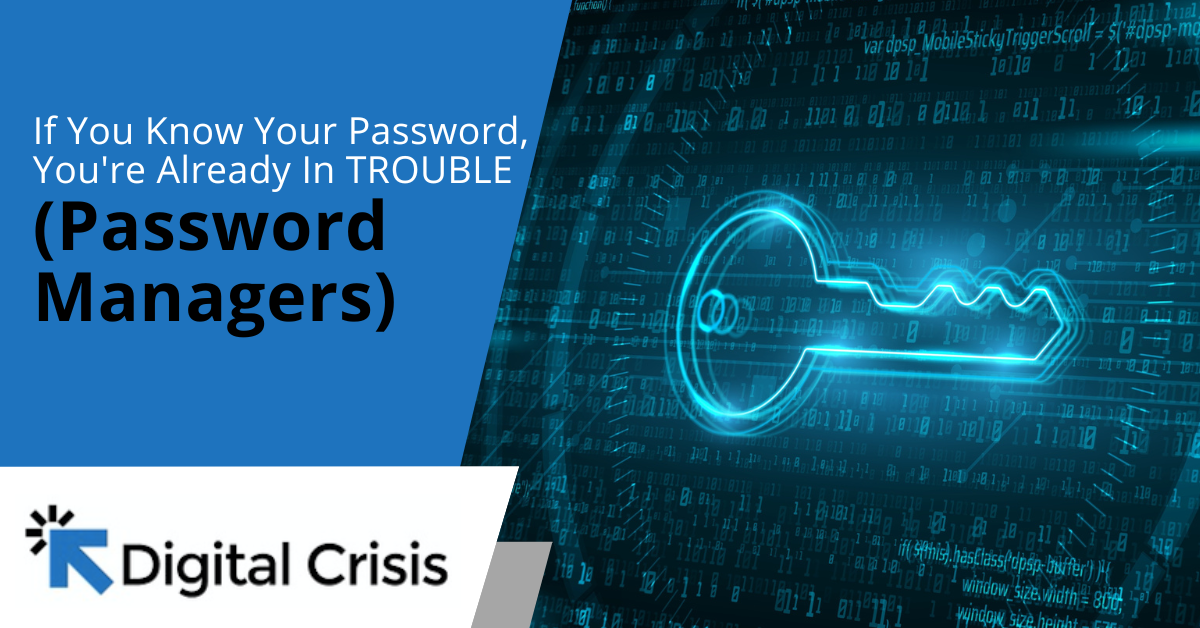
Why is knowing your password a bad thing? It’s because if you know it, then it’s most likely not very strong. It could be your pet’s name, partner’s birthdate, favorite song, or something else familiar to you.
Why is that a problem? Because it makes your password much easier to hack. People’s lives aren’t so private any more thanks to social media. Plus, if you are using memory for your passwords, then likely the number of passwords you use reaches beyond your limit to remember them. So, you reuse them.
If that doesn’t sound like you, then you’re in the minority. On average, 64% of people reuse the same password for multiple accounts. This leaves all of them more vulnerable. And they don’t usually separate work and personal. Their Netflix password may be the same one they use to log into the company’s Microsoft 365 account.
As you can imagine, this is bad news for cybersecurity efforts. In fact, password security has been handled so poorly that compromised credentials are now the #1 cause of data breaches globally.
Let’s recap the reasons why it’s bad to know your passwords:
51% of people rely on memory to manage passwords, and 57% that have been tricked in a phishing attack still don’t change their password.
It’s time to stop relying on memory to manage those many passwords. It’s not feasible to remember the roughly 100 passwords that people need to juggle today, and it’s not safe to rely on a rotating list of 3 or 4 passwords for everything.
There’s a much better way to do things. Let a password manager remember them for you.
A password manager is an application that acts as an encrypted vault for all your logins. The user only needs to remember a single password. This makes it more feasible for that single password to be one that is difficult and ticks all the boxes for strength.
You simply enter your one strong password, and you can instantly access all the others. They can be difficult and not make any sense – basically a string of letters, numbers, and symbols – because you never have to know them.
This improves security and mitigates the risk of getting hacked.
Password managers store passwords securely in an encrypted format. This eliminates problems with improper password storage. Some people store them in plain text formats like an Excel sheet, their contacts app, or a Word document. This makes it easy for a hacker to steal them.
Password managers protect passwords from being accessed by anyone but the authorized user or the authorized administrator of a company password manager account.
We all know that if something isn’t easy to use, then no one is going to adopt it. People will go back to putting passwords on sticky notes, and other bad habits.
Password managers are very easy to use. They can be used across devices and browsers, so wherever a person is working, their passwords are accessible. They can auto-fill passwords into forms, just like browsers can. Users can also copy/paste from the password manager.
Users no longer need to remember passwords – save the single one that unlocks the password manager. So, all their passwords can be unique for each site or application. They can also follow best practices by using passwords at least 10-12 characters long, with a string of letters, numbers, and symbols.
Password managers will generate strong passwords automatically, which makes it quick and easy for people to set up new accounts securely.
Most business password manager accounts will have a “company” and “personal” vault. Any passwords stored in the company password vault can be accessed by a chosen account administrator.
If an employee leaves, you won’t risk being locked out of a company account that no one else has the password for. You continue to retain account oversite for company-related logins.
Don’t risk an account breach that results in a devastating attack. Digital Crisis can help your Houston area business put secure password management solutions in place.
Contact us today to schedule a consultation. Call 713-965-7200 or reach us online.